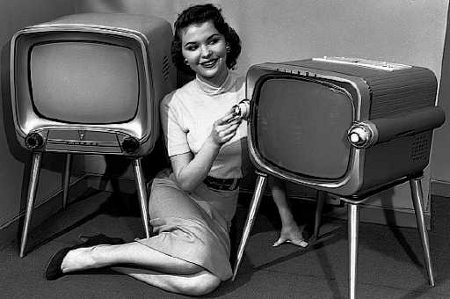 Adults around the world remain hooked on TV but the consumption habits of content-hungry viewers are changing rapidly, according to global research consultancy TNS.
Adults around the world remain hooked on TV but the consumption habits of content-hungry viewers are changing rapidly, according to global research consultancy TNS.
While our love affair with television endures, TV sets alone are no longer enough to satisfy our appetite for content, driving the growth of online media and ‘screen-stacking’ as a result.
In Connected Life, a study of over 55,000 internet users worldwide, TNS found that almost half of people (48%) who watch TV in the evening simultaneously engage in other digital activities, such as using social media, checking their emails or shopping online.
The survey found that we own approximately four digital devices each, rising to five among Australian, German and UK respondents. This, combined with demand for TV and video content on-the-go, is fuelling the rise of multi-screening or ‘screen-stacking’ – the use of multiple digital devices at the same time.
Our demand for live and on-the-go content has been amplified during the FIFA World Cup in recent weeks. Viewers worldwide are accessing this international sporting event via multiple devices at home and on the move, while also engaging in conversations on social media platforms.
The desire to access our favourite TV shows at all hours of the day is also driving online TV usage, which extends our access to them. One quarter (25%) of those surveyed worldwide watch content on a PC, laptop, tablet or mobile daily. This rises to one-third (33%) in mainland China and Singapore and 32% in Hong Kong, where ‘phablets’ are increasingly popular.
In Hong Kong, more people actually choose to watch TV and video online rather than on traditional sets. After dinner, one-quarter of people (26%) tune into content on their digital devices, in contrast to 14% who switch on their TVs.
Yet despite this surge in online consumption, traditional TV sets still play a huge part in our lives, with three-quarters of respondents (75%) sitting in front of the box every day. TV dinners are also alive and well, with three out of four viewers (76%) giving TV their undivided attention while eating in the evening.
Many of the big global media companies are already taking advantage of growing online viewing trends, offering on-demand services such as BBC iPlayer, Hulu or HBO GO, which allow people to access premium content wherever they are through their phones or tablets.
Commenting on the findings, Matthew Froggatt, Chief Development Officer at TNS, said:
“In a world where multi-tasking is the norm, the context in which we watch TV is rapidly changing – it isn’t just on the sofa at home with no other digital distractions around us. Instead, the growth in screen-stacking and online TV viewing is huge, particularly in the Asian markets, driven by a growing demand for content among viewers.
“While there is no disputing that our love of traditional TV remains, advertisers must continue to adapt to our changing viewing habits. Online devices are offering more ways to access TV and video content, meaning that brands will need to adopt a more integrated online approach in order to engage consumers.
“However, many people around the world are still wedded to their TV sets, particularly when they are with their families and friends. Our ongoing love affair with TV has been supported by the rise in digital set-top boxes, catch-up TV and on-demand services such as Sky+ and Virgin TV Anywhere.”
Percentage of people watching online video every day – either PC, mobile or tablet
Global 25
Europe 25
Australia 18
China 33
France 16
Germany 10
Hong Kong 32
India 20
Italy 33
Netherlands 12
New Zealand 17
Russia 44
Singapore 33
Spain 28
UAE 15
UK 17
USA 24
Percentage of people watching TV every day
Global 75
Europe 77
Australia 79
China 66
France 71
Germany 78
Hong Kong 75
India 78
Italy 82
Netherlands 76
New Zealand 69
Russia 73
Singapore 70
Spain 84
UAE 86
UK 80
USA 75